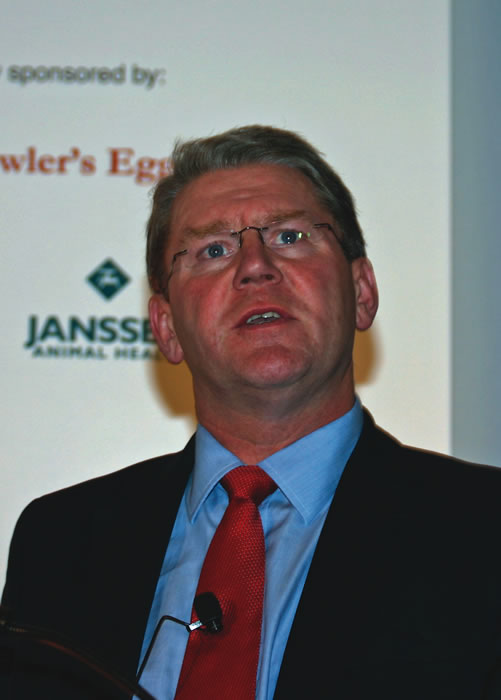
The challenge of producing more food while impacting less on the environment requires a co-ordinated approach involving the whole chain from international institutions to researchers on the ground, NFU President Peter Kendall said.
Mr Kendall told the British Crop Production Council Congress in Glasgow that the convergence of different challenges–the need to double food production over the next 40 years while addressing the challenges of climate change and dealing with the most severe financial recession since the Great Depression–was unlike any food production challenge the world had previously faced.
He said: "We face an enormous convergence of challenges that demand a long-term global view from governments and international institutions. But it also needs immediate, local and co-ordinated action by all of us.
"The Government’s chief scientist Professor John Beddington has said we need a"greener revolution"to enable us to produce more using less inputs and impacting less on the environment. No single part of the chain can meet this challenge on its own–we need producers and environmentalists, scientists and business, governments and climate change experts to make genuine partnerships if we are going to achieve it."
Mr Kendall said farmers in the UK were well placed to respond to the challenge but investment in productive agriculture and agricultural research and development was required to enable the industry to fully capitalise on its assets–a need the NFU had highlighted in its Why Science Matters for Farming campaign.
"Producers are up for and up to the challenge and are prepared to play their part but we need the scientific and technological advances that will enable us to do it. We need to take action where we can to reduce our impact on as many fronts as possible and action is already being taken through industry-led programmes like the Voluntary Initiative on pesticide use and through agri-environment schemes which now cover two-thirds of the agricultural land–six million hectares–in England.
"The announcement of up to£75 million of investment by the new Technology Strategy Board for research and development aimed at increasing agricultural productivity while reducing farming’s environmental impact is a welcome step in the right direction and one I’m sure forward-looking farm businesses across the UK will support. But we also need a long-term policy view both nationally and internationally that provides stability and allows farmers to get on with the job."
